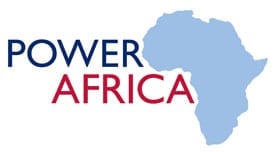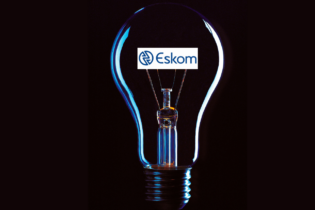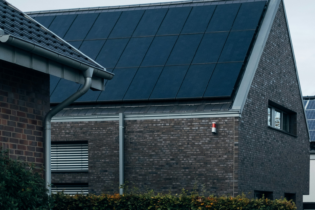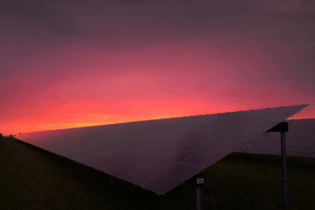Two out of three sub-Saharan Africans (600 million people) lack access to electricity. In June 2013, U.S. President Barack Obama announced Power Africa — an initiative to double the number of people with access to power in Sub-Saharan Africa.
Since the projects inception, the initiative has made substantial progress in increasing electricity access in sub-Saharan Africa, as well as gained increasing support from government’s and institutions around the world. At the recent U.S. – Africa Business Forum, billions were pledged in support of the initiative. A New Operating Model The level of funding needed to electrify the continent far outstrips the capacity of African governments and foreign donors. Power Africa has developed an innovative model based on transactions with private investors and policy support to governments to focus and enable key projects. By leveraging U.S. strengths in energy technology, private sector engagement, and policy and regulatory reform, Power Africa will galvanize collaboration, make quick-impact interventions, and drive systemic reforms to facilitate future investment. World Bank pledges $5 billion Speaking at the Powering Africa: Leading Developments in Infrastructure session during the U.S. – Africa Business Forum, World Bank Group President Jim Yong Kim said, “We think that the U.S. Power Africa initiative will play an extremely important role in achieving the goal of providing electricity for Africa…. the World Bank Group, following President Obama’s lead, will support Power Africa by committing $5 billion in direct financing, investment guarantees, and advisory services for project preparation in Power Africa‘s six initial partner countries.” The $5 billion will go towards technical and financial support for energy projects in six African countries, namely Ethiopia, Ghana, Kenya, Liberia, Nigeria, and Tanzania, which have partnered with Obama’s Power Africa initiative. Africa has vast hydropower potential, but uses just 8% of this untapped water force. In comparison, Western Europe uses 85% of its available hydropower potential, which has contributed to its economic development and industrialisation. “Like Europe and the rest of the world, Africa deserves the same opportunity to exploit this green source of power to improve the lives and economic prospects of its people,” said World Bank Vice President for Africa Makhtar Diop. “We are working with African leaders and their development partners to create power pools in Africa’s East, West, Central, and Southern sub-regions. Those countries with abundant geothermal, gas, hydro, solar, and wind resources can feed their excess power supply into a common pool, while neighbouring states with less energy and generation capacity can benefit from this integrated approach to delivering electricity to their people,” said Diop. AfDB commits $3 billion The African Development Bank (AfDB) Group President Donald Kaberuka has reaffirmed the AfDB’s support to advance the Power Africa initiative with a commitment of $3 billion over a 5-year period.The AfDB committed itself as an anchor Power Africa partner on the continent, in July 2013. In 2013, AfDB interventions related to focus countries (Ethiopia, Ghana, Kenya, Liberia, Nigeria and Tanzania) amounted to over $600 million.
Under the enhanced partnership announced at the US-African Leaders Summit, the U.S. and the AfDB will collaborate on scaling up the use of off-grid and mini-grid technologies, supporting geothermal power development, and strengthening regional power trading between African countries among others. Over the next year, the AfDB expects to commit approximately $1 billion in support of energy projects in the six Power Africa focus countries. Once implemented, these operations will make up 5% to 10% of the Power Africa goal of developing 10 000 MW of new power generation in Sub-Saharan Africa. Sweden gets involved The Government of Sweden announced a commitment to catalyze investments of $1 billion to the Power Africa initiative. The partnership began during Obama’s trip to Stockholm in September 2013, when he met with principals from across the Nordic region and reaffirmed joint commitments to deepen collaboration in the energy sector. “Our participation is a clear sign of the solid partnership between Sweden and the U.S. in the field of development cooperation,” said Swedish Minister for Finance Anders Borg. “Power Africa marks a new age in the use of innovative financing solutions in development cooperation. By focusing on the energy sector more people and areas will gain access to electricity, which will be a strong force to economic and social development to the benefit of poor people.” $498.2m for Ghana The Millennium Challenge Corporation (MCC) signed a $498.2 million compact with the government of Ghana to transform the country’s power sector by investing in projects focused on distribution, energy efficiency and renewable energy. According to MCC CEO Dana Hyde, the compact represents the largest U.S. government transaction to date under the Power Africa initiative. “The compact we sign today takes a system-wide approach to transforming Ghana’s power sector,” said Hyde. It invests in projects focused on distribution to make Ghana’s energy sector financially viable and capable of attracting private investment, as well as funds initiatives supporting greater energy-efficiency and cleaner renewable energy.






